Joan Cross began her operatic career in 1923 when she joined the chorus of the Vic-Wells Opera Company, then throughout the 1930s she enjoyed success as one of the leading sopranos of the Sadler’s Wells Opera Company taking on a wide range of solo roles.
In September 1940 Sadler’s Wells Theatre was requisitioned by Finsbury Borough Council as a Rest Centre for local residents whose houses had been bombed. Sadler’s Wells Opera was forced to become a touring company with Cross taking over management of the company from Tyrone Guthrie, and then becoming director.
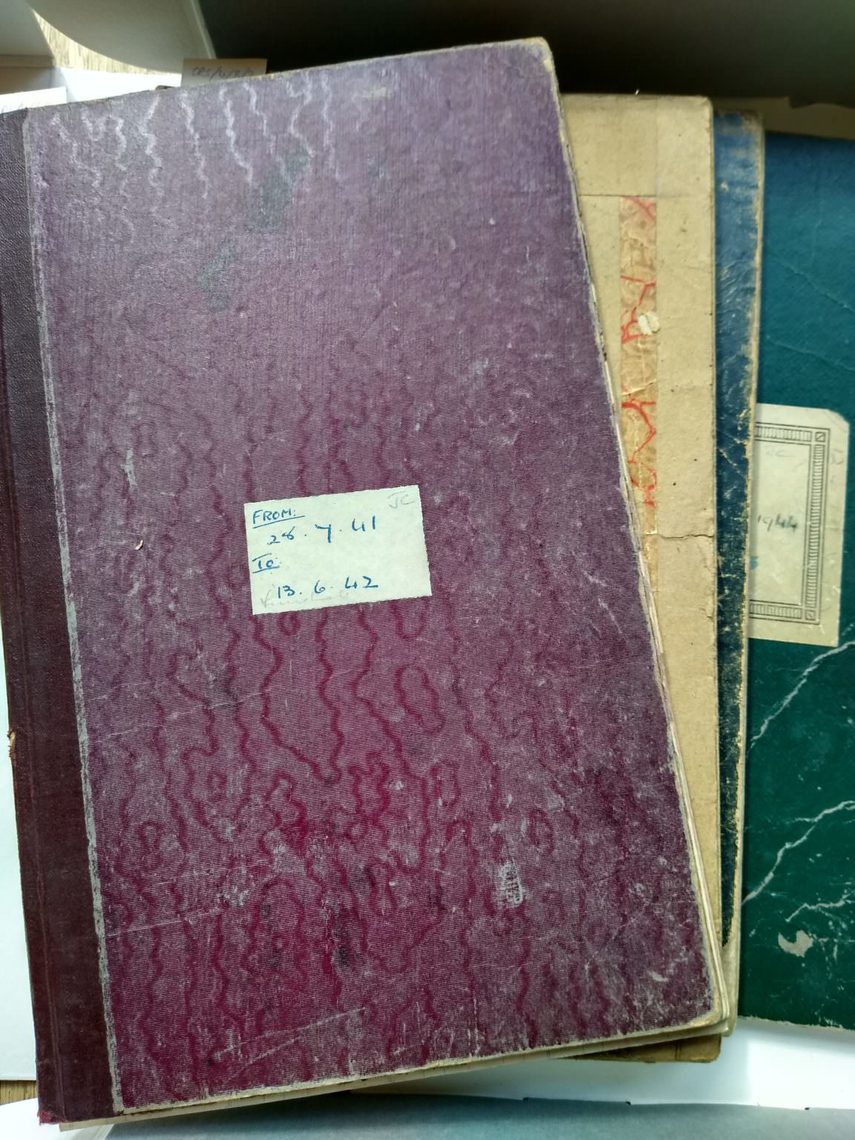
Joan Cross’s cast books.
In her role Cross kept meticulous details of the company’s tours in four large books dating from 1941 to 1945 covering most of their five years on the road. In these she recorded the towns visited, operas performed each day, singers, conductor and details of cast illnesses or other hitches.
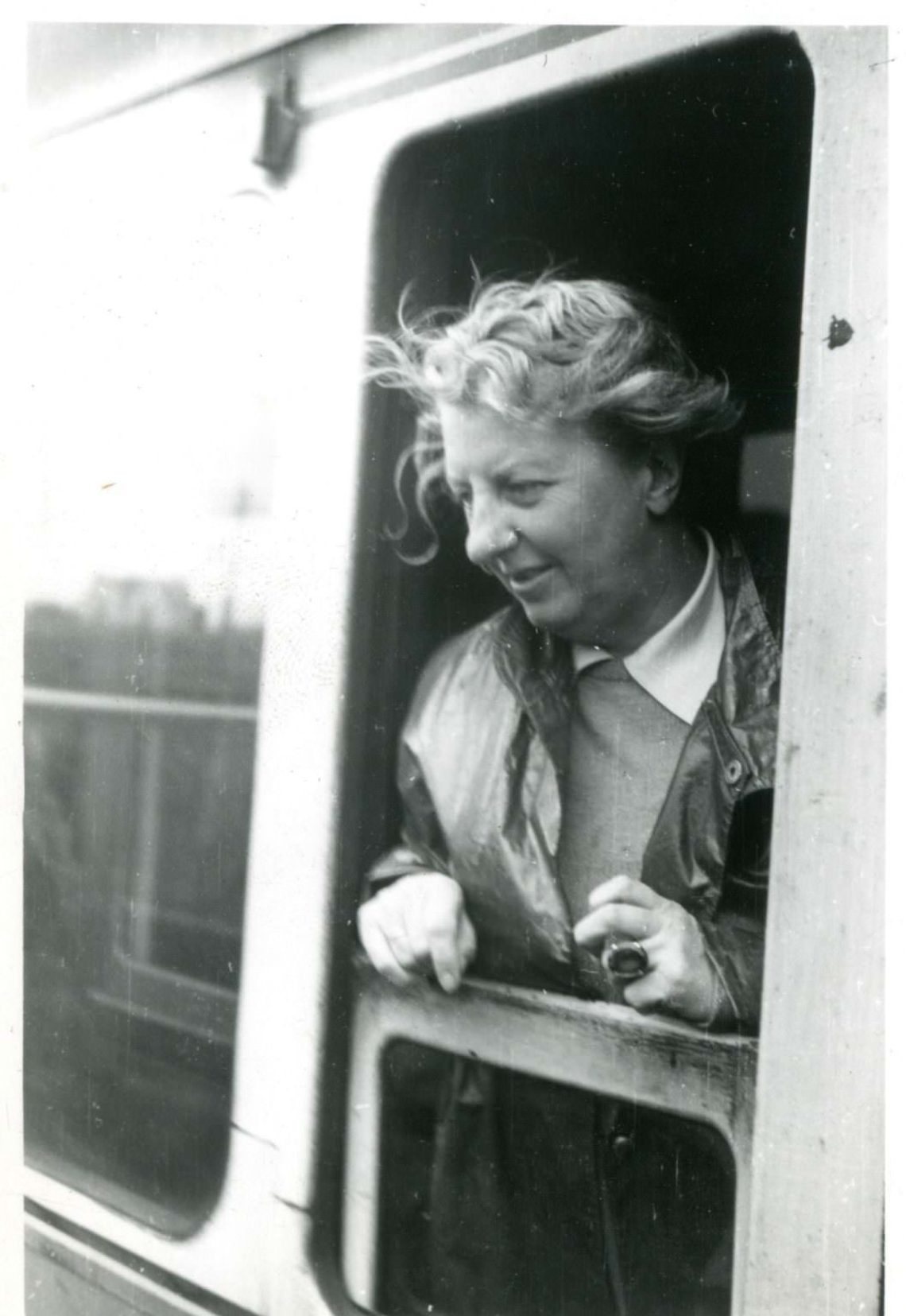
Joan Cross, professional singer, director of Sadler’s Wells, and tireless traveller.
These fascinating books are part of Joan Cross’ papers held in our Archive and made available for research. Her papers also include an unpublished autobiography with a chapter on ‘The War Years’ where she describes the trials and hardships they encountered but also the successes of the tours.
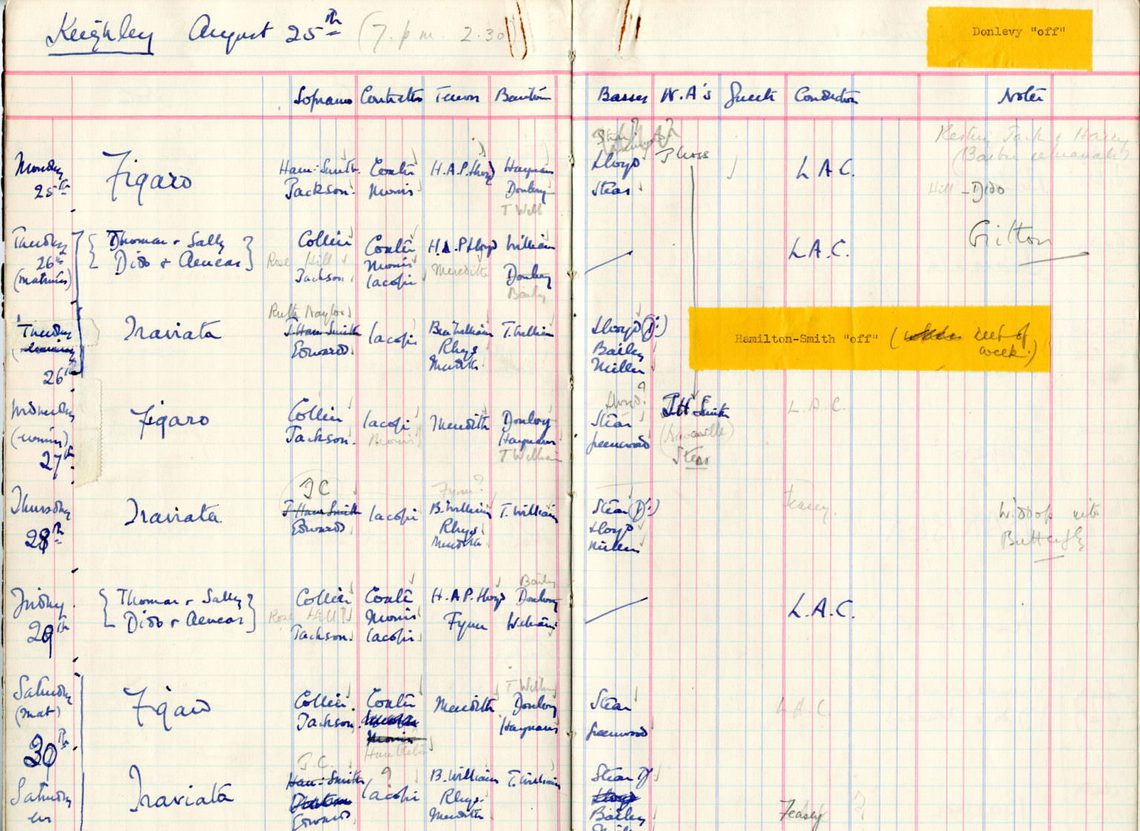
Details of performances in Keighley 25-30 August 1941.
Cross writes in her autobiography that the tour began with a small group – the company shrunk from one hundred to ‘20 performers – principle singers, chorus, stage management and …a sketchy orchestra….two first violins, one second, a clarinet and a bassoon’. The conductor had to reduce the scores for this tiny combination and to fill in at the piano. ‘They carried with them a basket or two of costumes, and two decorative screens that were to serve them as scenery’.
The extent of the country they toured is astonishing, relentlessly moving each week from one town to the next – Buxton, Oldham, Keswick, Accrington, Harrogate, Dewsbury, Carlisle, Halifax, Whitehaven… – mostly across the North but also visiting Scotland, Wales and towns in Southern England – Bath, Exeter, Brighton… In her books Cross recorded, for each town, details of the 8 performances given that week.
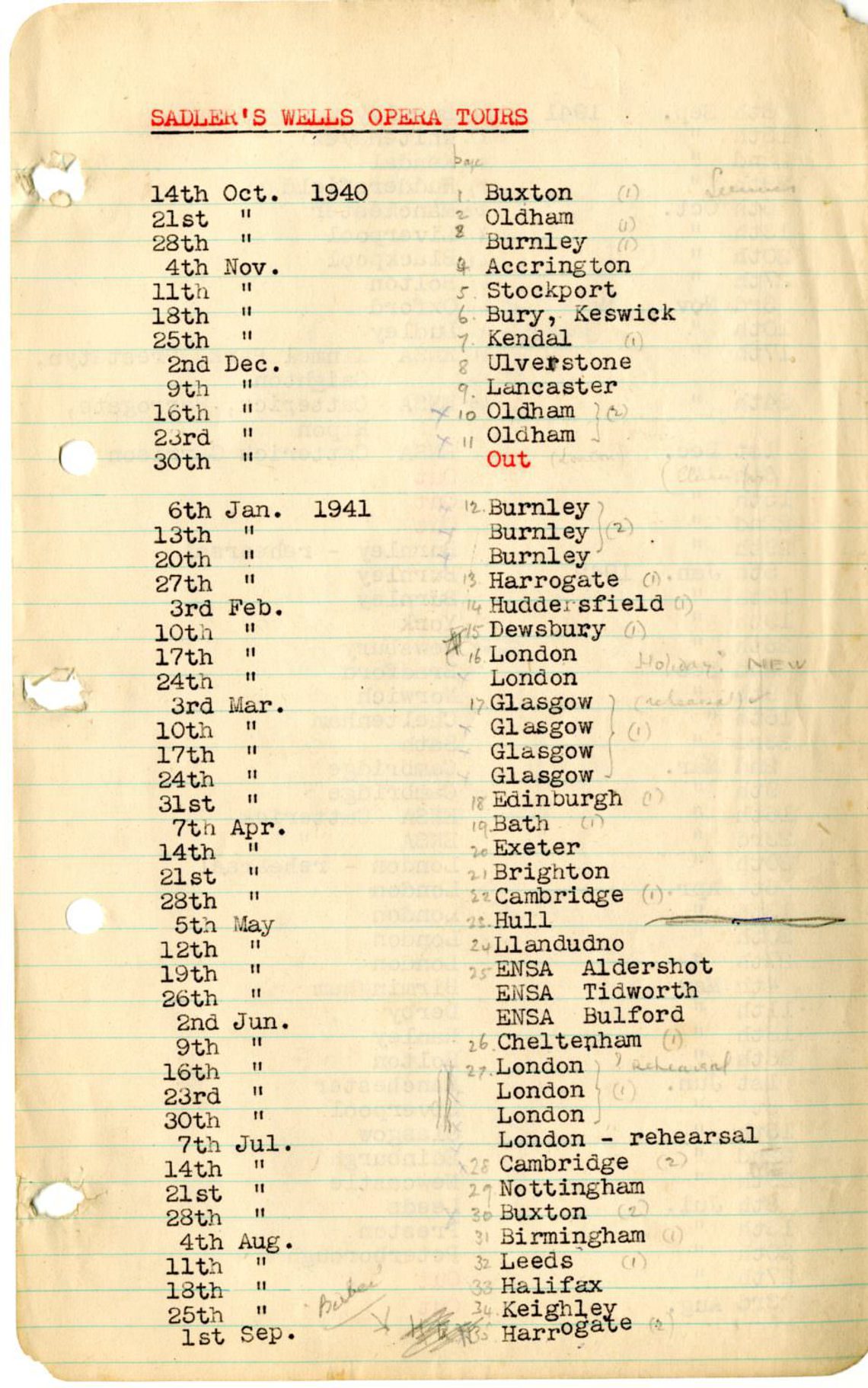
Typewritten list of towns toured from October 1940 to June 1945, found with the cast books.
The company encountered the heavy bombing of both Manchester and Clydebank however Cross writes in her autobiography that the ‘the most serious and most alarming of our blitz experiences’ was in Hull. The company witnessed the terrifying attacks on the city on the night of 7 May 1941. When the windows of their hotel were broken by a violent explosion, they cowered in the basement. As the theatre had not been hit, the company presented a matinee performance of La Traviata the next day, thinking that nobody would turn up to watch. However Cross writes ‘To our utter astonishment quite a sizeable audience assembled and we started ..and stopped, started and stopped, the electricity failing with surprising regularity. It was daunting to me and maddening to the valiant audience who at the last black out surrounded the orchestra with hand torches so that the opera went on.’ The company and residents of Hull were then evacuated before the city was bombed again the following night. On 12th May the now ‘rather quiet company’ found itself on a train to Llandudno and so the tour continued.
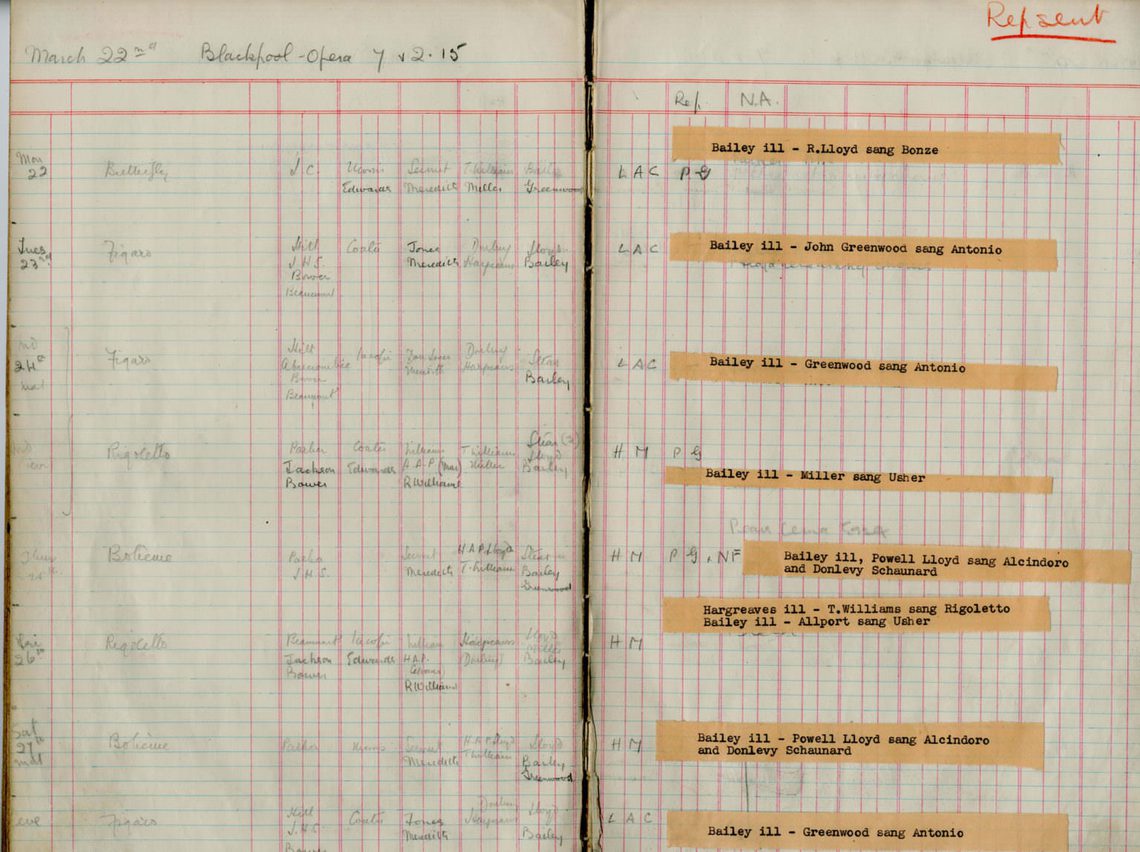
Details of performances in Blackpool 22-27 March 1943.
Although Cross did not cast herself, she regularly stood in for other singers if they were ill. In particular for Madam Butterfly as the company had only one singer for this lead role – when she was indisposed Cross ‘had to leave the office and go out on the stage’. She engaged Peter Pears with the company in 1943 marking the beginning of their long friendship. He sang several roles including the Duke in Rigoletto – for the first time on 3 April 1943 in Blackpool.
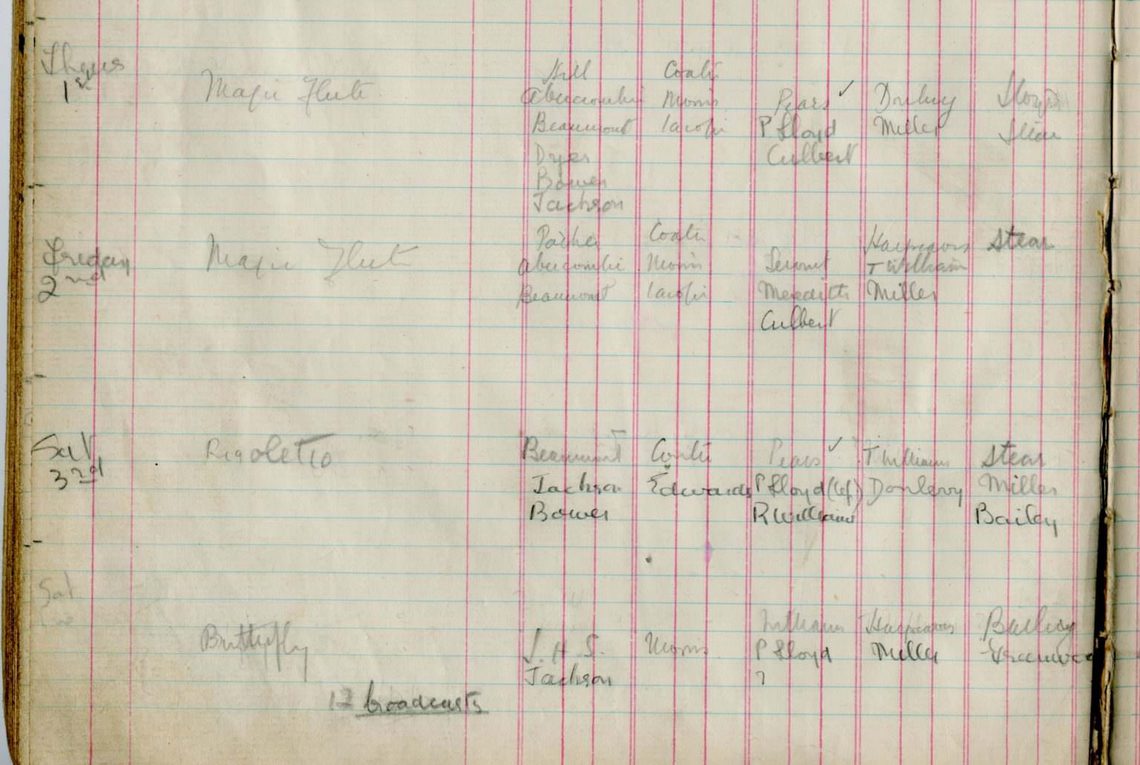
Detail of performances 1-3 April 1943 with Pears singing in The Magic Flute and Rigoletto.
Cross writes that ‘very few of us had experience of touring, of finding a new ‘theatre’ each week, of finding digs, of endless and supremely uncomfortable journeys from town to town’. The conditions were difficult – they had to cope with many unsuitable theatres, leaky roofs or town halls with no dressing rooms. The company was transported with costumes and props in a large bus in the early days. They set off with no capital except a small guarantee from CEMA (Council for the Encouragement of Music and the Arts). However, box office returns were good and they were able in time to increase the number of singers and size of orchestra, then appoint some stage staff – the company grew into a workable body.
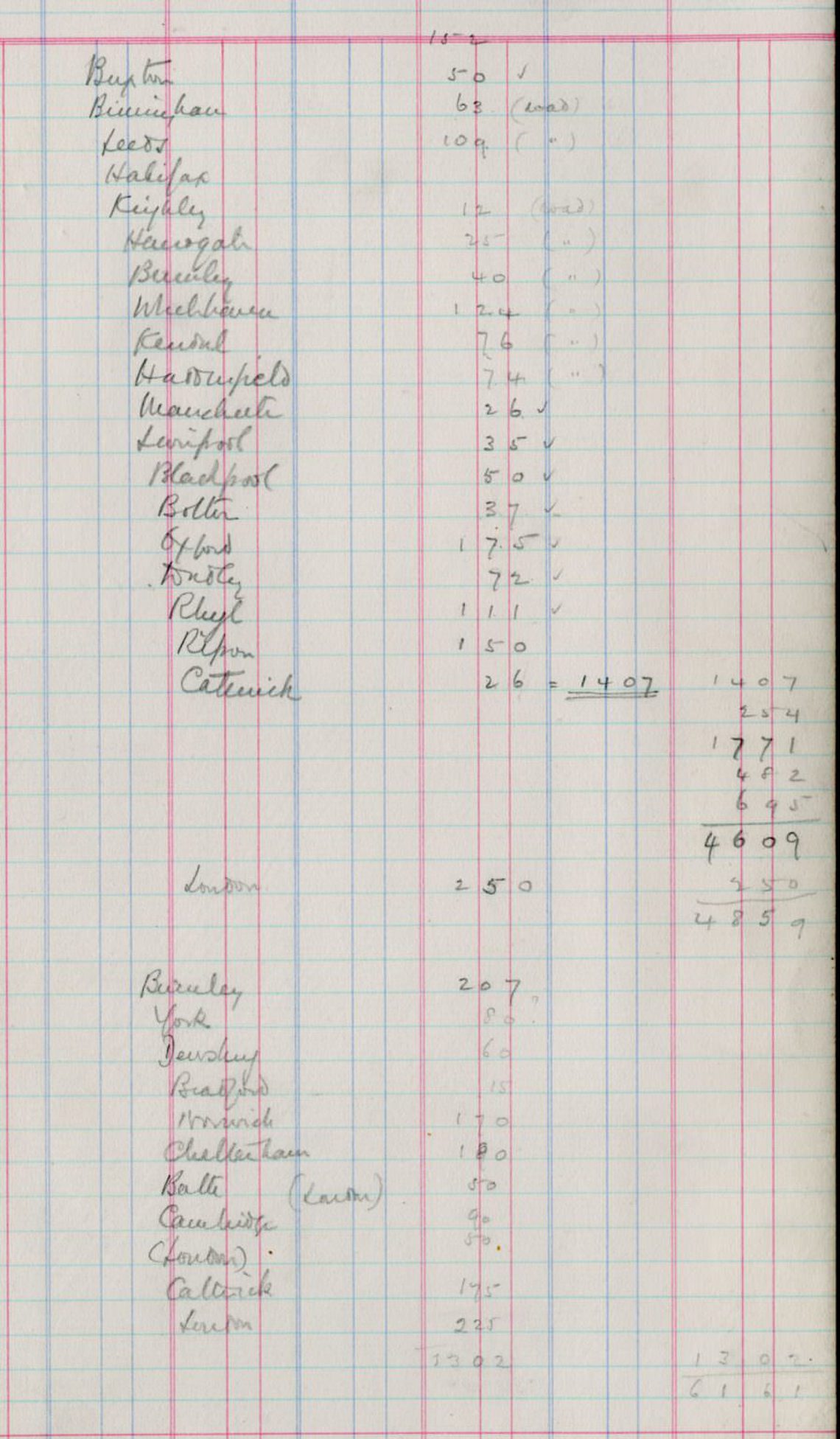
List of towns with figures probably for box office takings.
When Cross took over management of the touring company she knew that it would be hard work, often dealing with tiresome essentials, but she saw it as her contribution to the war effort. They were bringing opera to towns starved of the arts, building morale – they also proved that there was an audience for opera outside London. They even paid off debt on Sadler’s Wells Theatre and when they eventually returned home the company had money in the bank.
The next chapter in Cross’s autobiography is of course entitled ‘Peter Grimes’. Britten’s new opera reopened Sadler’s Wells Theatre on 7 June 1945 with Cross creating the role of Ellen Orford and so began her long working relationship with Britten.
- Judith Ratcliffe, Archivist
